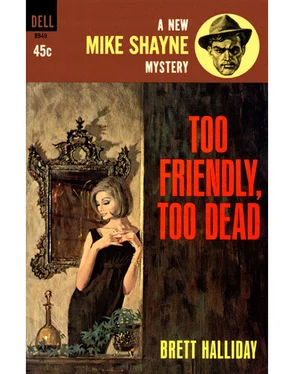Dan Fesperman - The Double Game
Здесь есть возможность читать онлайн «Dan Fesperman - The Double Game» весь текст электронной книги совершенно бесплатно (целиком полную версию без сокращений). В некоторых случаях можно слушать аудио, скачать через торрент в формате fb2 и присутствует краткое содержание. Жанр: Шпионский детектив, на английском языке. Описание произведения, (предисловие) а так же отзывы посетителей доступны на портале библиотеки ЛибКат.
- Название:The Double Game
- Автор:
- Жанр:
- Год:неизвестен
- ISBN:нет данных
- Рейтинг книги:3 / 5. Голосов: 1
-
Избранное:Добавить в избранное
- Отзывы:
-
Ваша оценка:
- 60
- 1
- 2
- 3
- 4
- 5
The Double Game: краткое содержание, описание и аннотация
Предлагаем к чтению аннотацию, описание, краткое содержание или предисловие (зависит от того, что написал сам автор книги «The Double Game»). Если вы не нашли необходимую информацию о книге — напишите в комментариях, мы постараемся отыскать её.
The Double Game — читать онлайн бесплатно полную книгу (весь текст) целиком
Ниже представлен текст книги, разбитый по страницам. Система сохранения места последней прочитанной страницы, позволяет с удобством читать онлайн бесплатно книгу «The Double Game», без необходимости каждый раз заново искать на чём Вы остановились. Поставьте закладку, и сможете в любой момент перейти на страницу, на которой закончили чтение.
Интервал:
Закладка:
“To help me, you mean?”
She nodded.
“Maybe it’s even the same people,” she said.
“The Russians? That doesn’t make sense. My handler wants to find out if Lemaster was a double agent. The Russians would already know.”
“Unless they were trying to find out if he was a faithful double agent, a real double agent.”
Excellent point, and the possibility that it might be true cast everything I’d been doing in a new light. Even the Hammerhead might be my handler. Then, just as suddenly, the idea seemed ludicrous.
“I don’t know, Litzi, using all of these old spy titles to lead me around just feels so, well, American, don’t you think?”
“You don’t think Russians read all those novels? You don’t think they weren’t going through every page looking for kernels of truth, just like you were?”
Another good point, which made my head hurt.
“I’m scared of all this, Bill. Especially after what happened to Vladimir. I love seeing you, love being with you again. But now it seems like too much, too far. Yet every time I think of quitting, or of not getting on that train to Prague, my curiosity becomes bigger than my fear, because this has become personal for me as well. And now you know why.”
“So you still want to go?”
“From what your father says, it sounds like we’d better.”
“Probably.”
“But Prague won’t be enough, will it?”
“Budapest, too, most likely. After that, who knows?”
“Then I had better phone my office to clear enough time. I’ll have to come up with something good, I suppose.”
Dad returned to the table, so she took her phone off to a corner where we wouldn’t have to hear her lying to her bosses. He looked me over carefully, as if inspecting for damage.
“Everything all right between you?”
“Yes.”
“Glad to hear it. You’re a lucky man.”
“I suppose I am.”
“All the same, be careful.”
“I don’t intend to hurt her.”
“I meant for yourself.”
“I’m not sure how I’m supposed to take that.”
“Just as well. I’m not quite sure how I meant it.”
I was about to ask for an explanation when he held a finger in the air and reached into his pocket for a folded sheet of paper.
“Almost forgot,” he said, glancing around to make sure we weren’t overheard. He lowered his voice. “I talked to Lewis Dean at the embassy.”
“The ‘regional specialist’?”
“I asked about that Russian you described, the one you called the Hammerhead. He seemed to think it might be a fellow they used to keep tabs on years ago. They never knew his code name but called him Brass Tacks. They were pretty sure he worked for a Moscow hand named Oleg.”
Leo’s handler. And Leo, aka Vladimir, aka Trefimov, was now dead after having put some of his oldest secrets up for sale. I nodded and tried not to look alarmed.
“Lew checked some files for me. Dormant for ages on the subject of Brass Tacks, except for one item. They think that in the past year he went into business for himself with a bunch of other old hoods, calling themselves the Argus Consortium, which didn’t show up on anyone’s radar screens until this.” He unfolded the paper, a photocopy of a New York Times piece from two months ago. “Take a look.”
It was a brief story from the business section about new government contracts landed by Baron Consulting.
“Isn’t Baron Breece Preston’s company?”
“Keep reading.”
Baron had won two new U.S. contracts for intelligence services in Afghanistan and Colombia. Rough neighborhoods. Lucrative pay. The story estimated the total payout over the next six years would be $660 million, pending congressional approval. Then came the kicker. “The new contracts,” the Times said, “cap a busy summer of expansion in which Baron also won a security contract in the former Soviet republic of Turkmenistan, as part of a joint venture with the Moscow-based Argus Consortium.”
“Interesting,” I said, trying not to show how worried I was by this alliance of two such disagreeable fellows, both of them apparently connected in some way-but how? — to the trail of old clues Litzi and I were exploring.
“Lew also said Breece Preston has apparently gone walkabout in the past few weeks.”
“Walkabout?”
“Disappeared almost overnight from their Baghdad operations center. Some cover story about a health issue involving his family, but no one’s buying it, mostly because no one seems to know where he’s gone.”
“Wonderful.”
“It’s still not too late to get out, son.”
“Actually…” I handed back the paper “… it’s beginning to sound like it is.”
He grimaced and looked down at the table, but didn’t disagree. He was about to say more when he looked up and broke into a smile for Litzi, who had materialized at my shoulder holding her suitcase. Dad stood. I did the same, although I felt a little shaky.
“All clear,” she said brightly. “We’d better get going before they change their minds.”
We said our farewells on the sidewalk.
“Best of luck, son.” Dad gripped me fiercely. “I’m here if you need me. And don’t forget to keep David apprised of your movements.”
The three of us exchanged hugs. Then he went one way and we went the other. The weather was almost springlike, and to judge from her sunny smile, Litzi seemed to be shaking herself free of the ghosts that had been stalking her only minutes earlier.
I was the moody one now, not only worrying about who might be waiting around the next corner, but also wondering what Dad had meant by his cryptic warning about Litzi. I wondered, too, what both of them knew that I still didn’t.
21
Folly’s rule of thumb for safe traveling on the shadow side of the Iron Curtain was simple but maddening. Beware the Friendlies. This was especially true once you disappeared into the tumbledown gloom of the cities, where you were so easily observed, stalked, followed, every step measured and recorded for the daily tick-tock of the all-knowing watchlists and logbooks.
Your enemies, Folly reasoned, were far more reliable, predictably steadfast in their opposition. You knew where they stood, and planned accordingly. But Friendlies, especially the eager and daring ones who nonetheless managed to survive, well, how could you ever say for sure what accounted for their staying power? Was it their zeal to serve or their zeal to deceive? And, if you suspected the latter, how should you behave in their presence? How much weight should you give to their local rules of engagement? Folly took extra care never to turn his back on them, literally or figuratively, a caution he had lived by since his earliest days as a field man.
Yet, as with all such rules, there were painful exceptions, moments when his well-cultivated mistrust had nonetheless led to miscalculation, even heartbreak. He remembered in particular a Czech named Kohut, personally recruited, admirably rewarded. One fine October evening in Prague, Kohut lay dead at Folly’s feet, his face obliterated by a Russian soft-nosed bullet. This unshakable proof of Kohut’s loyalty had arrived just as Folly had become convinced of the man’s duplicity. Such were the wages of vigilant mistrust.
How, then, was Folly ever supposed to make progress on enemy territory while operating under such careful constraints? Answer: He didn’t. Not really. He only pretended to pick his way forward while in reality he was fighting a lifelong holding action against uncertainty and doubt.
As a field man, the pressures of this daily stalemate had finally driven him to a desk job. As a desk man, they were driving him to bedlam. So here he was, heading back into the field once again, bound for the deepest and oldest of the shadows from his past. And, like it or not, the old rules of caution were still in force.
Читать дальшеИнтервал:
Закладка:
Похожие книги на «The Double Game»
Представляем Вашему вниманию похожие книги на «The Double Game» списком для выбора. Мы отобрали схожую по названию и смыслу литературу в надежде предоставить читателям больше вариантов отыскать новые, интересные, ещё непрочитанные произведения.
Обсуждение, отзывы о книге «The Double Game» и просто собственные мнения читателей. Оставьте ваши комментарии, напишите, что Вы думаете о произведении, его смысле или главных героях. Укажите что конкретно понравилось, а что нет, и почему Вы так считаете.












